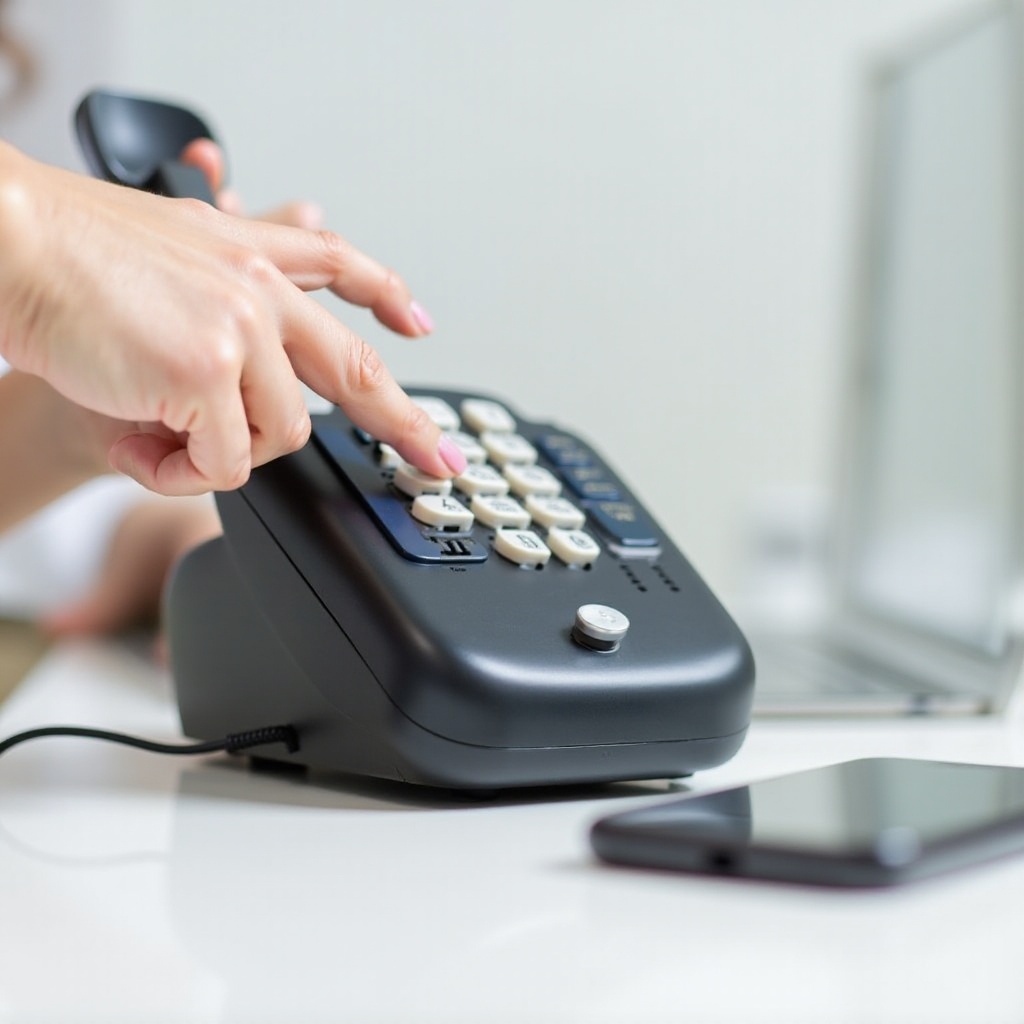Introduction
Call forwarding allows you to receive important calls even when you are away from your landline. By forwarding calls to your cell phone, you ensure that you never miss any critical communication, be it personal or professional. This process is not complicated and can be managed with ease by following a few straightforward steps.

Understanding Call Forwarding
The concept of call forwarding involves redirecting incoming calls from one phone number to another. This feature is incredibly useful if you frequently move between locations.
What is Call Forwarding?
Call forwarding is a telecommunication feature that enables users to divert incoming calls from one phone line to another. This function is beneficial for those who need to stay connected even when they are away from their primary phone.
Types of Call Forwarding
There are several types of call forwarding:- Unconditional Call Forwarding: Redirects all incoming calls to another number.- Conditional Call Forwarding: Forwards calls only under specific conditions such as when the line is busy, unanswered, or unreachable.
Benefits of Call Forwarding
Call forwarding provides numerous advantages:- Convenience: Receive calls on your mobile phone when you are not at home.- Never Miss a Call: Ensure important communications are received.- Professionalism: Maintain a constant line of communication for business purposes.
Preparing for Call Forwarding
To initiate call forwarding, verify that your devices and service plan are compatible. This ensures a smooth setup and operation.
Checking Landline Compatibility
Before you begin, confirm that your landline service provider supports call forwarding. This information can usually be found on the provider’s website or by contacting customer support.
Service Provider Requirements
Different service providers have varying procedures and requirements for call forwarding. Check with your provider to understand any prerequisites, such as activating the feature on your account.
Understanding Costs and Fees
Be aware that some service providers may charge extra fees for call forwarding. It’s essential to understand these costs upfront to avoid unexpected charges on your bill.

Step-by-Step Guide to Forward Calls from Landline to Cell Phone
Once you have verified compatibility and understood any associated costs, you can proceed to set up call forwarding.
Using Landline Service Provider’s Forwarding Feature
Many landline providers offer a built-in call forwarding feature. Here’s how to use it:
Provider-Based Code Dialing Method1. Pick up your landline handset and listen for the dial tone.2. Dial the call forwarding activation code (typically *72).3. Enter the cell phone number you wish to forward calls to.4. Press the '#' or 'send' key (this process may vary by provider).5. Wait for a confirmation tone or message.
Online Account Method1. Log in to your landline service provider’s online account portal.2. Navigate to the call forwarding settings.3. Enter the cell phone number to which you wish to forward calls.4. Save the settings.
Using Third-Party Call Forwarding Apps
For more flexibility, you can use third-party call forwarding apps.
Recommended Apps for Android and iOS- Call Forwarding (Android)- Call Forwarding Lite (iOS)- Remote Call Divert (Android)
Basic Setup and Usage Instructions1. Download and install the app from Google Play Store or Apple App Store.2. Open the app and follow the on-screen instructions to configure call forwarding.3. Enter the cell phone number where you want to forward the calls.4. Complete the setup process and ensure the app is running properly.

Troubleshooting Common Forwarding Issues
Even the best plans can hit a snag. Below are common issues and solutions to keep your call forwarding running smoothly.
Forwarding Does Not Work
Ensure that call forwarding is enabled on your landline service. Double-check the dialed forwarding number and codes.
Connectivity Issues
Make sure your cell phone is active and within a coverage area. Restart both your landline and cell phone if forwarding issues persist.
Handling Unexpected Costs
Review your bill regularly to ensure there are no unexpected charges. If you notice any discrepancies, contact your service provider immediately.
Managing Forwarding Settings on Your Cell Phone
Once forwarding is set up, manage your call settings to ensure everything runs smoothly.
Adjusting Call Settings on Android and iOS
Both Android and iOS devices allow you to tweak call settings for better control:- Navigate to your phone settings.- Go to call settings or phone options.- Adjust call forwarding options as needed.
Disabling Call Forwarding
When you no longer need call forwarding, disable it using the following steps:1. Dial the deactivation code (typically *73 for most providers).2. Or, visit the online account portal and turn off call forwarding.
Managing Forwarded Call Logs and Notifications
Keep track of forwarded calls through your phone’s call logs and notifications. This way, you maintain a record of all your communications.
Conclusion
By setting up call forwarding, you ensure that you never miss another important call, whether personal or professional. The process is straightforward and can be easily managed with the right knowledge and tools.
Frequently Asked Questions
How do I know if my landline supports call forwarding?
Check with your service provider or consult the user manual of your landline phone for details on support for call forwarding.
Will I be charged for forwarded calls?
Some providers may charge for forwarded calls. It's crucial to check with your service provider to get details on any potential costs.
Can I forward calls to multiple cell phones simultaneously?
Most landline services only allow forwarding to one number at a time. For forwarding to multiple phones, consider using advanced call management apps or services that offer this feature.
